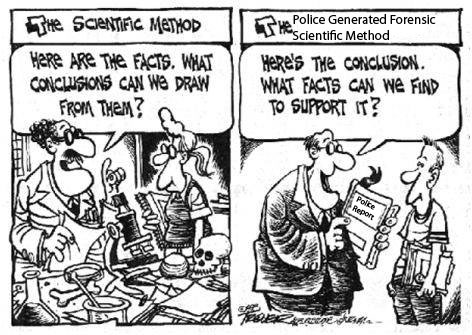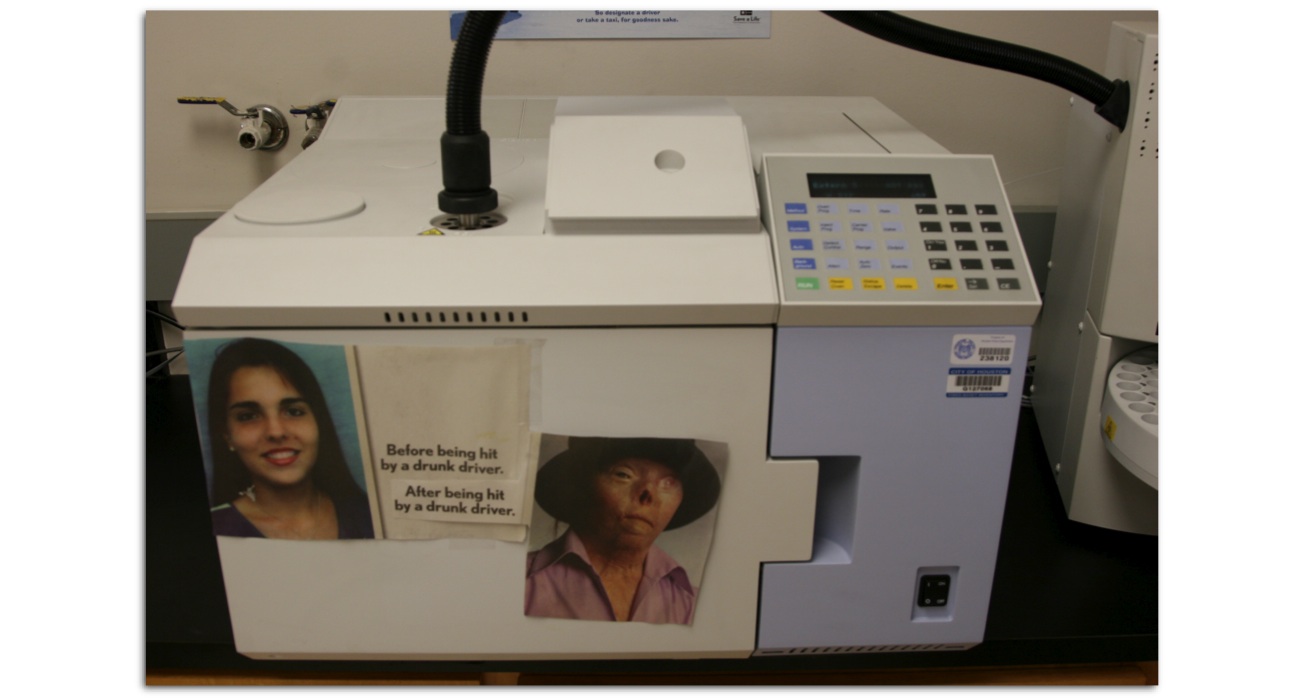There is a fundamental question before us today: In the world of forensic science as practiced today, is it truly scientific?
Or does forensic science create a veneer of science that whitewashes what in reality is science fiction?
We have blogged on it before:

The scientific framework of forensic science is it wrong?
The scientific method teaches us a linearized and pragmatic scheme of attempting to truly find the truth (or as near to the truth as we as humans are capable of achieving). The scientific method can be explained as follows:
- Define a question
- Gather information and resources (Make an observe)
- Form an explanatory and falsifiable hypothesis
- Test the hypothesis by performing an experiment and collecting data in a reproducible manner
- Analyze the data
- Interpret the data and draw conclusions that serve as a starting point for new hypothesis
- Publish results
- Retest (frequently done by other scientists)
The glorious part of true science is that we can preform experiments and try to falsify our experiments. In true science there is great joy in falsifying the hypothesis.
This is largely lacking in forensic science.
In forensic science, the state crime laboratory starts out with a hypothesis that it wishes to prove rather than the falsifiable hypothesis that it is seeking to disprove.
What is lost in a lot of politics of crime is that a state crime laboratory is the people’s laboratory paid for by our taxpayer money. It is not the state’s crime laboratory. It is the people’s laboratory. Therefore, it should exist to aid the citizens and not the prosecuting authority. As such, as they are the people’s laboratory, and if they are performing legitimate true science they should start with a falsifiable hypothesis that is consistent not with guilt (as they now do) but that of innocence. It’s job should be to try to exonerate the people who are accused of a crime.
For example, in the context of blood alcohol, the laboratory should start out with the hypothesis that there is no ethanol in the blood sample and then look to design an experiment that seeks to falsify that hypothesis. If there is determined to be ethanol in the sample, then the laboratory should work hard to try to disprove this by really scrutinizing the data to look for error that will invalidate the result. As it exists in the US today, the crime laboratory does the opposite of this. The crime laboratory starts out with the notion that there must be ethanol in the blood and therefore sets up experiments to confirm this notion and totally ignores data that is contrary to innocence or would make the conclusion non-validated or invalid even if it obviously exists. If they get a number, they like it and seek to justify it against all data to the contrary.
There is great joy in a true experiment deigned and conducted correctly.
As my great friend and fellow traveller on the road of educating lawyers in science Ron Moore instructs us:
At the end of the day we (in forensic science) are expressing opinions. Not empirical immutable facts. As such, it all really comes down to human integrity and bias. Forensic science is a human endeavor. And as such, it is subject to human error and manipulation. That is a scary thought.
This is true.
The difference between forensic science and true science is truly the difference between confirmation versus investigation.
The historical way that forensic science developed was a process used to “solve a crime.” As such, the idea was presented with an answer suggested based upon context. Such as:
- Is this and this a match?
- Is this fingerprint left behind the scene sourced to this suspect?
- Is there arsenic in the stomach contents of the decedent because we found an arsenic bottle next to the bottle?
- What drugs are in this motorist’s blood because I saw his car weave on the road?
This is seeking to confirm a hypothesis. It is the direct antithesis of true science.
In true science, we investigate. We entertain all possibilities no matter how remote and seek to falsify the hypothesis. As such, the re-made frame should be presented thusly:
- Such and such are not a match.
- This fingerprint left behind the scene cannot be sourced to this suspect.
- There is no arsenic in the stomach contents of the decedent.
- There are no drugs are in this motorist’s blood.

Also there is bias and undisclosed bias.
- Should crime laboratory forensic scientists receive and accept awards from prosecutors for convictions?
- Should crime laboratory forensic scientists receive and accept awards from advocacy groups such as the Citizen Assistance Award from MADD for convictions?
- Should crime laboratories accept money and donations from certain political and “victim’s rights” groups?
- Is it right and ethical that crime laboratory personnel develop questions and ready made scripts for prosecutors to use in trials?
- Should crime laboratories have biased posters hanging up in their laboratory?



